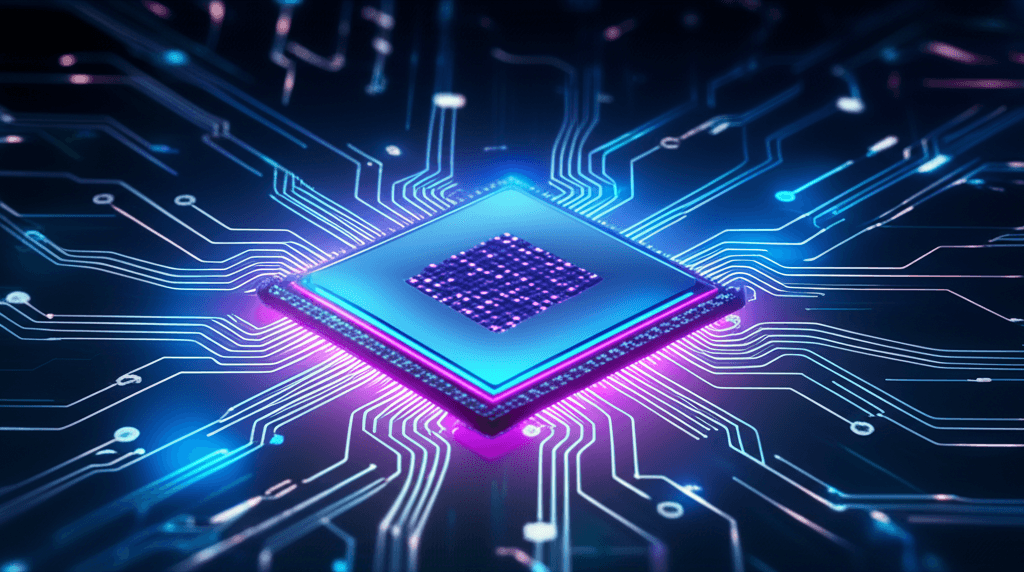AI Boom Propels Nvidia Past Apple as World's Most Valuable Company
Nvidia's AI chip supremacy establishes the bedrock of artificial intelligence, reshaping Silicon Valley's power dynamics.
July 7, 2025

In a seismic shift that underscores the technology industry's new focal point, chipmaker Nvidia has ascended to the throne as the world's most valuable public company, displacing longtime leader Apple. Fueled by an insatiable demand for its specialized artificial intelligence chips, Nvidia's market capitalization recently surged to a staggering $3.9 trillion.[1][2] This milestone is not merely a testament to one company's success but a clear indicator of the transformative power of AI and the redrawing of Silicon Valley's hierarchy. The chipmaker, once known primarily to the gaming community, now stands at the epicenter of a global technological revolution, with its hardware forming the bedrock of advancements in everything from large language models to autonomous vehicles.[3][4]
Nvidia's journey to the top has been nothing short of meteoric. The company's valuation has skyrocketed, growing nearly eight-fold over the past four years from $500 billion in 2021 to nearly $4 trillion.[1] This explosive growth is directly tied to the exponential expansion of the AI market. The global AI chip market, valued at $14.9 billion in 2022, is projected to reach over $383 billion by 2032.[5] Tech giants like Microsoft, Amazon, Meta, and Alphabet are in a fierce race to build out their AI data centers and capabilities, creating a voracious appetite for Nvidia's processors.[1] This intense competition has translated into soaring sales for Nvidia, with analysts projecting revenues to double in fiscal 2024 and more than quadruple from the year prior.[6] The company's financial performance has consistently outpaced market expectations, driven by its data center segment which now accounts for the vast majority of its sales.[3][7]
The foundation of Nvidia's market dominance lies in a strategic fusion of cutting-edge hardware and a deeply entrenched software ecosystem.[8] At the heart of this ecosystem is CUDA, a parallel computing platform and programming model that allows developers to harness the immense processing power of Nvidia's GPUs.[9][10] First launched in 2006, CUDA has become the de facto standard for AI development, with millions of developers relying on its libraries and tools.[11][8] This creates a powerful "flywheel effect": as more developers use CUDA, more tools and applications are built for it, which in turn solidifies Nvidia's position and makes it difficult for competitors to gain a foothold.[8] While rivals like AMD and Intel are also developing AI chips, Nvidia holds a commanding market share, estimated to be around 80% of the AI GPU market.[12][13] The company's latest chip architectures, like the recently announced Blackwell, promise even greater performance, further cementing its technological lead.[14][13]
The leadership of co-founder and CEO Jensen Huang has been instrumental in navigating Nvidia through its 30-year history, marked by both near-failures and bold, visionary bets.[15][16] Huang's leadership style is described as unconventional, fostering a culture of transparency and urgency.[17][6] He is known for his relentless work ethic, reportedly driven by a fear of failure and complacency.[18][6] This mindset has permeated the company, which has a history of taking significant risks that have ultimately paid off, such as the early decision to invest heavily in the tools for accelerating workloads on its GPUs, a move that perfectly positioned the company for the current AI boom.[6][15] Huang's journey from co-founding a company with what he described as a "0% chance of success" to leading the most valuable corporation in the world is a story of resilience and long-term vision.[16]
The implications of Nvidia's ascent are far-reaching. It signals a shift in the tech industry's center of gravity from consumer-facing products, long dominated by Apple's iPhone, to the underlying infrastructure that powers artificial intelligence. The combined market influence of Nvidia, Apple, and Microsoft is immense, with the trio accounting for about one-fifth of the S&P 500's total weight.[19][20] Nvidia's rise has also reshaped global supply chains and spurred increased investment in AI-related sectors worldwide.[3] However, the company is not without its challenges. Geopolitical tensions, particularly US export controls to China, pose a significant risk and have prompted Nvidia to develop specialized chips to comply with regulations.[7][21] Despite these headwinds, many analysts remain bullish, with some predicting the company could be the first to reach a $4 trillion or even $5 trillion market capitalization.[22][23][24]
In conclusion, Nvidia's dethroning of Apple is a landmark event that signifies the dawn of the AI era in the global economy. The company's remarkable valuation is built on a commanding lead in the critical AI chip market, a robust and defensible software ecosystem, and visionary leadership that has weathered decades of industry shifts. While the path ahead includes navigating geopolitical complexities and intense competition, Nvidia's current position as the world's most valuable company firmly establishes it as the primary engine of the ongoing artificial intelligence revolution. The ripple effects of its success will continue to be felt across industries, shaping the future of technology and the global economic landscape for years to come.
Sources
[3]
[7]
[8]
[9]
[10]
[11]
[12]
[13]
[14]
[15]
[16]
[17]
[18]
[21]
[22]
[23]
[24]